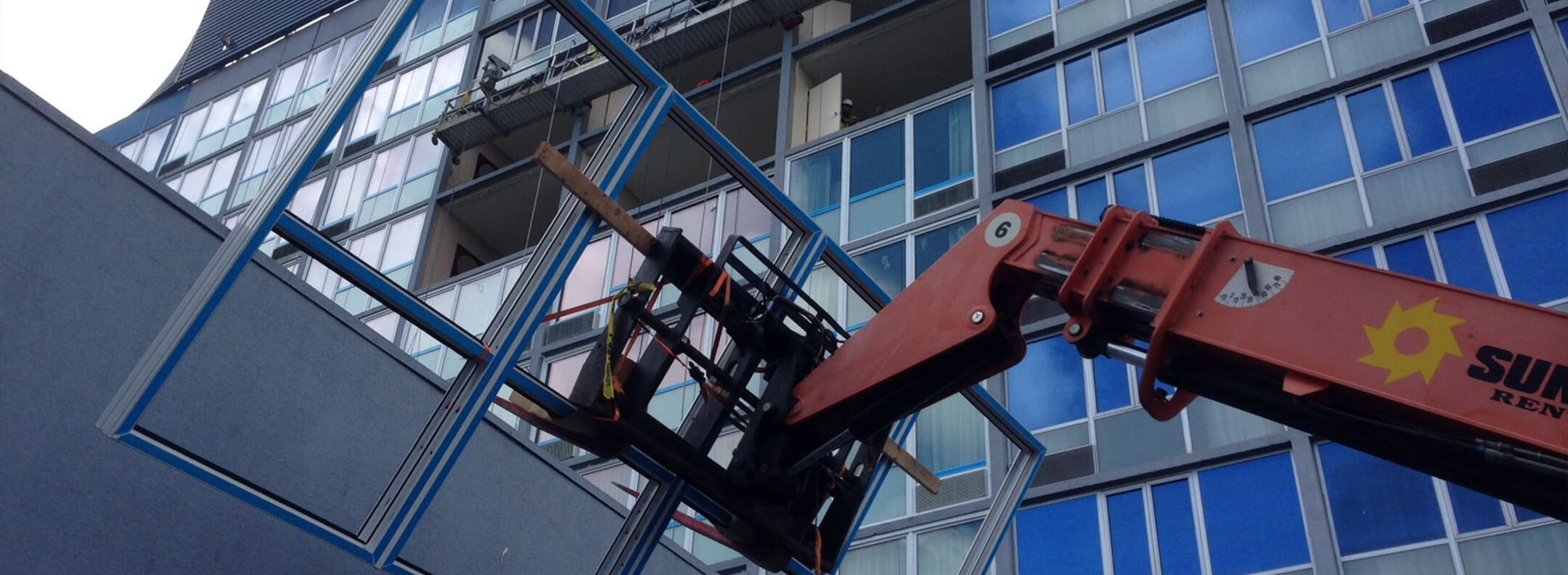These upgrades are meant to help hotels save on energy costs, reduce noise, and, as an added bonus, improve the environment.
At Amerail Systems, we’re the top hotels’ go-to energy-efficient window installers.
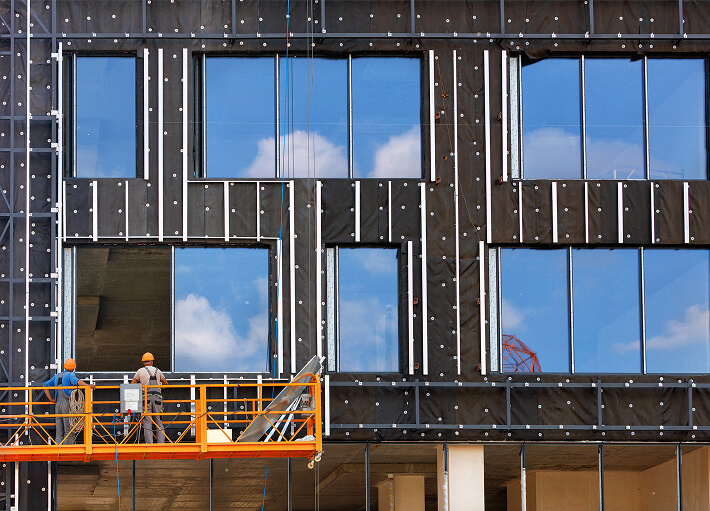

Benefits of Energy-Efficient Windows in Hotels
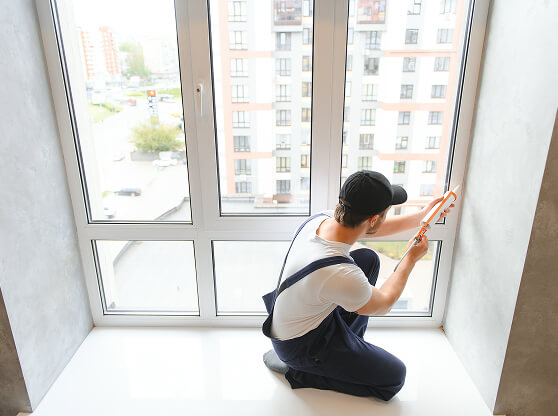
Noise Reduction
Noise-reducing hotel windows work by slowing the transfer of sound waves.
Replacing existing windows with energy-efficient windows achieves this by optimizing the air space, mixing the thicknesses of glass, or adding additional panes of glass, reducing the vibration of sound, and creating a quieter environment.
Cost Savings of Energy Efficiency
Energy-efficient windows are great for keeping rooms warm in the winter and preventing damage to hotel interiors in the summer.
Energy-efficient windows prevent frost buildup and heat loss, causing less need for room heating and lower energy costs.
These windows also reduce ultraviolet (UV) rays by up to 75% protecting your hotel’s interior from sun damage such as faded artwork, fabric, carpet, and wood.
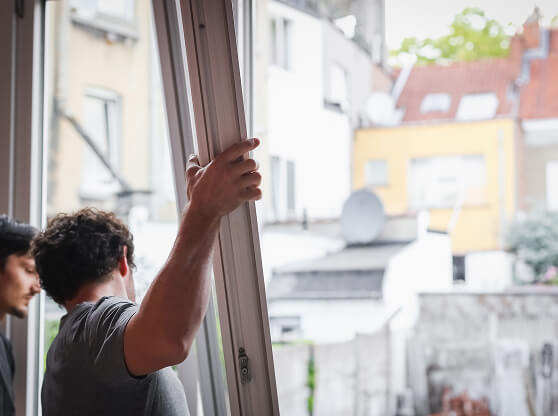
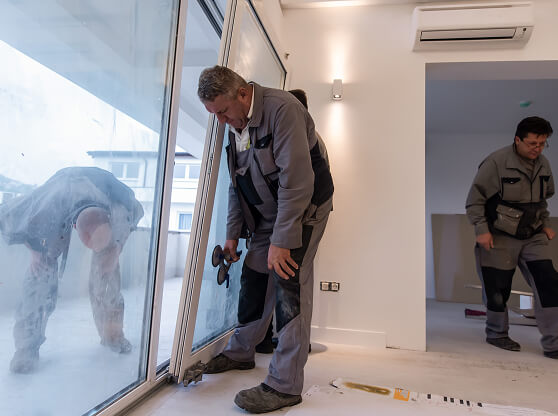
Higher Guest-Satisfaction
- Helps to Prevent Drafts in Guest Rooms for Guest Comfort
- Reduces Noise Pollution
- Less Need for Adjusting Heating/Cooling in Guest Rooms
- Environmentally Conscious
- Interiors Look Less Faded/Last Longer
Environmentally Friendly
Improving energy efficiency reduces greenhouse gases, which contribute to climate change. Due to the large number of windows on hospitality properties, reducing the footprint of these windows can result in a much more environmentally friendly building.
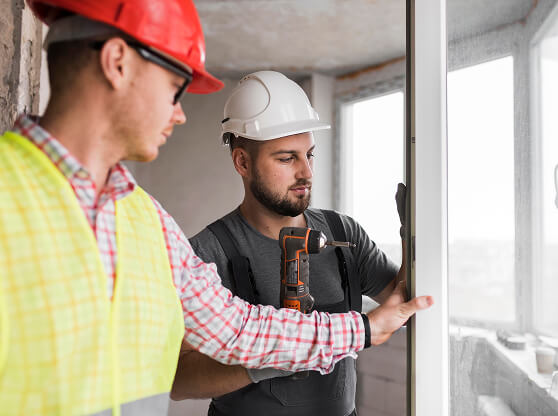
Find More Reasons to Switch
Check Out Our Blog
Make the Switch to Energy-Efficient Windows to Save on Energy BillsAs the temperature goes down and the heat in your hotel rooms gets turned up, bills may increase as well. If the windows in your hotel are not yet energy efficient you may be missing out on potential savings.
Upgrade to Energy-Efficient Windows
Marriott | Houston, TX
HOTEL OWNER CASE STUDY
Houston Marriott | Energy Efficient Window Installation
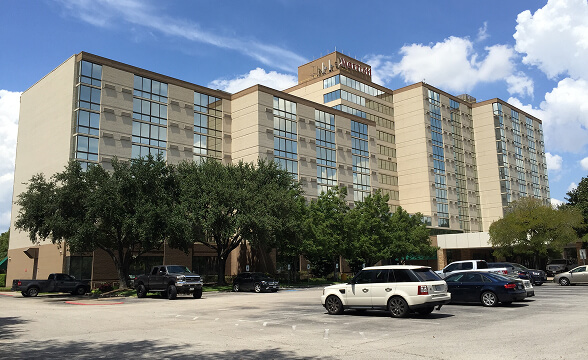
Before
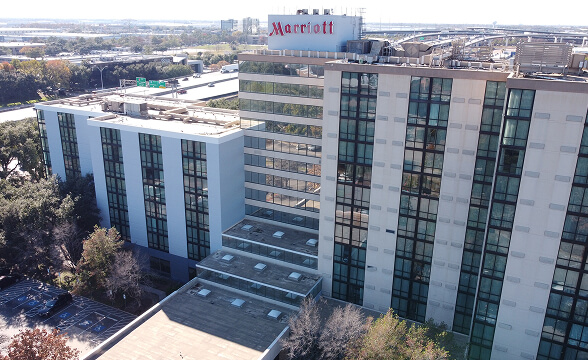
After
Heat Gain | Heat Loss
Solar Heat Gain Coefficient measures how much solar radiation passes through your window and is released as heat inward. The lower a window’s solar heat gain coefficient, the less solar heat it transmits.
U-Factor is the rate of heat loss of a window assembly. The lower the U-factor, the greater a window’s resistance to heat flow and the better its insulating properties.
Relative Heat Gain is the amount of heat gain through a glass product, taking into consideration the effects of solar heat gain (SHGC) and conductive heat gain (U-value). The lower the RHG, the greater the glass restricts heat gain.
Houston Marriott Case Study
In our Houston Marriott window replacement project, we were able to reduce the SHGC to .28 from .82, meaning a reduction of 54% in solar heat gain.
With this project, we were also able to reduce the U-Factor between 67% and 75% depending on the time of year and current weather conditions.
At the Houston North Marriott, we reduced the relative heat gain from 201 to 67, representing a 66% reduction in relative heat gain.
Amerail Systems is a nationally recognized hotel renovation company, approved by boutique hotels, independent owners, and major brands such as:

